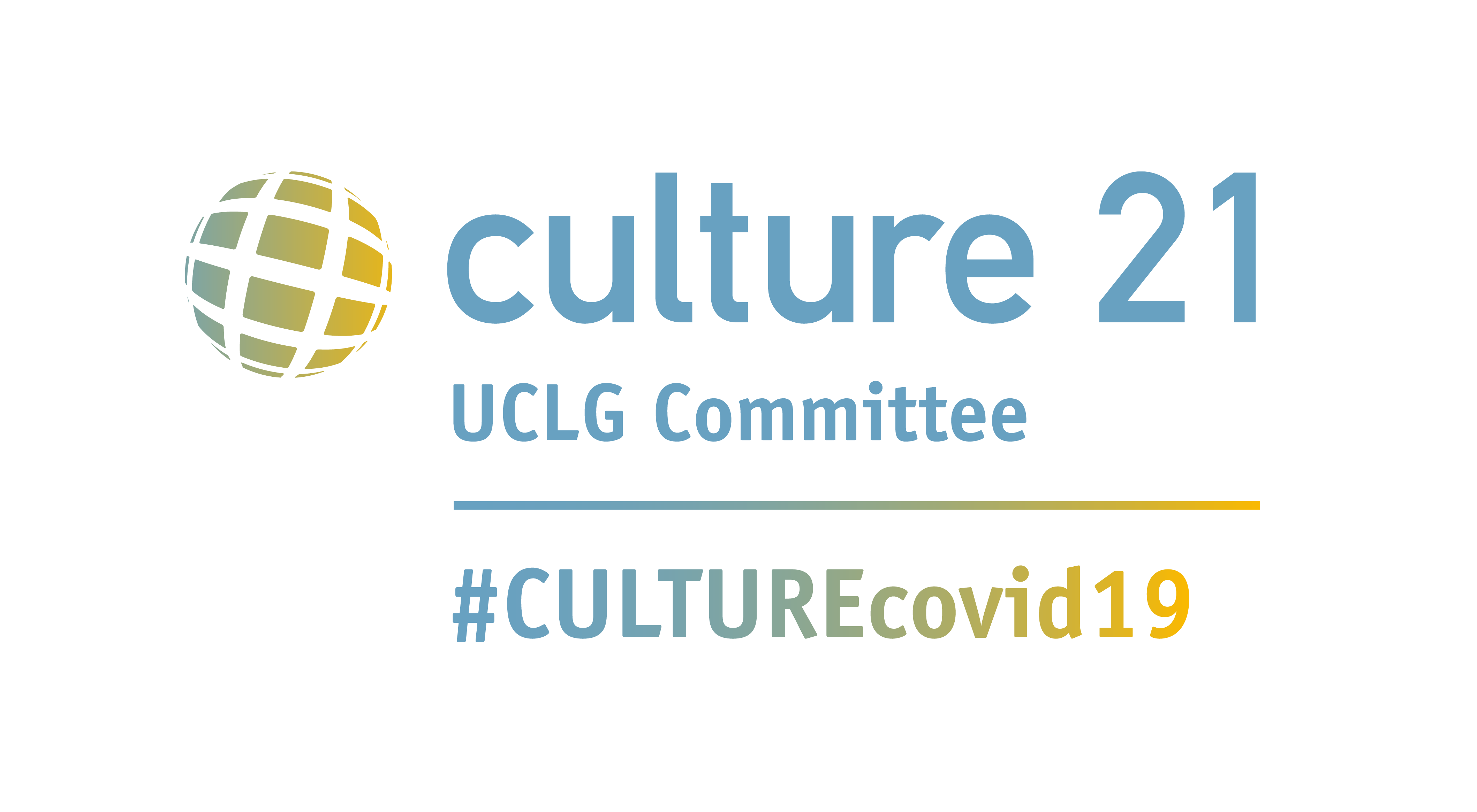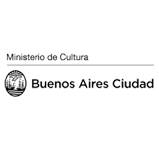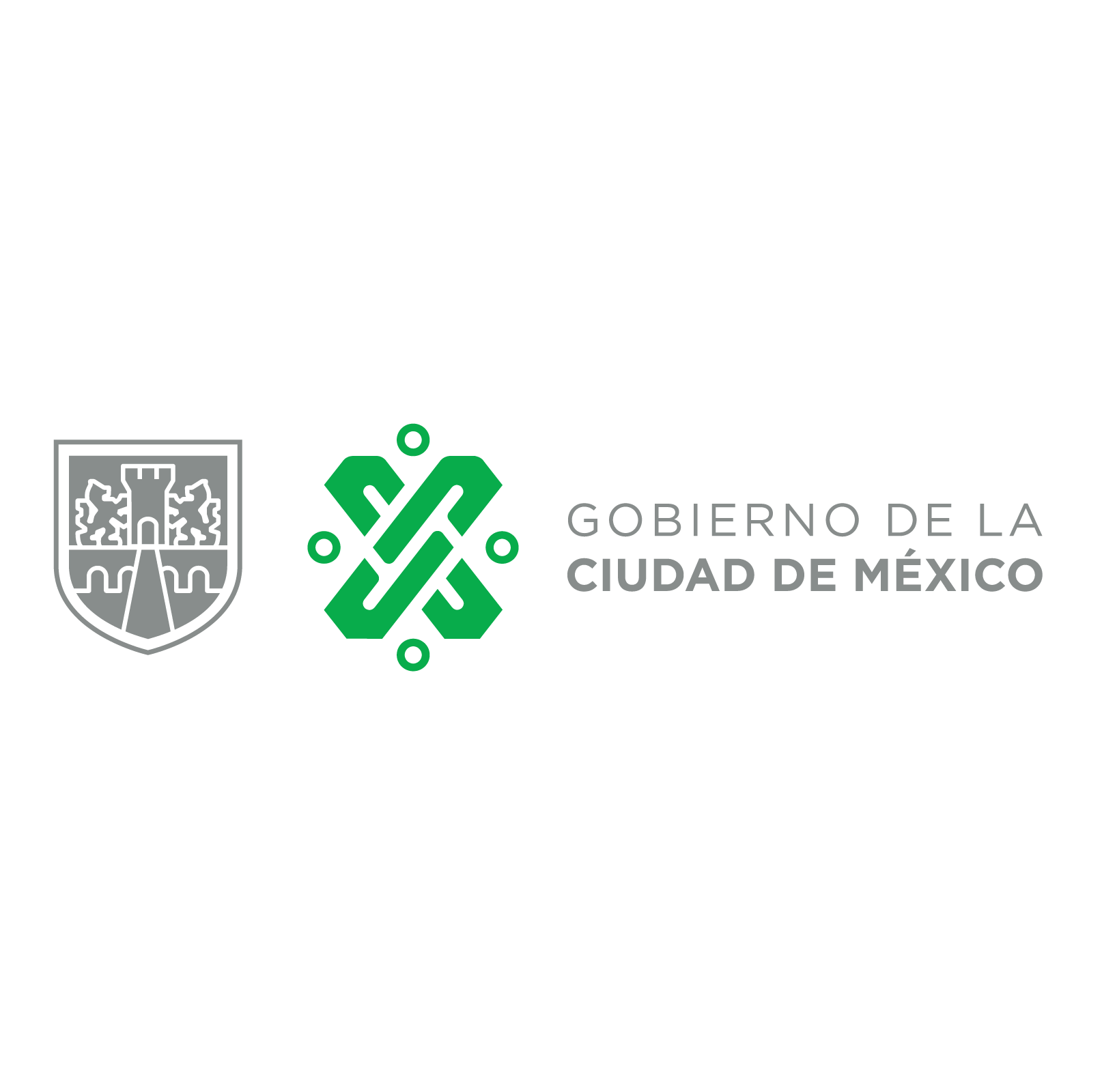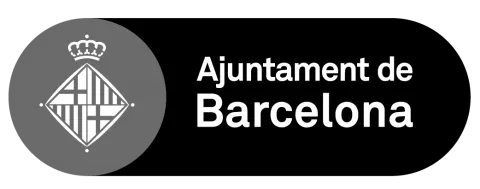
The cultural mobilization of cities and local governments in the COVID-19 crisis
The humanity is facing an enormous challenge. The COVID-19 crisis has an impact in all dimensions of our lives: the public health, the labour systems, the social interaction, the political debate, the use of public spaces, the economy, the environment, and the cultural life.
COVID-19 is hitting the cultural life of our communities very severely. Libraries, memorials, community centres, museums and all cultural venues, have suffered several weeks of lockdown; some of them are still closed and some are getting ready to reopen with physical distancing measures. Performances, festivals, parades, carnivals and intangible heritage events have been cancelled, and there is still uncertainty on how these events will take place again. The online presence of cultural institutions and organisations has exponentially gorwn. Workers in the sectors, who are often in an already precarious situation (self-employed, freelancers) may be left for months without any income. The active involvement of all in the cultural life of the community is very damaged by COVID-19, and so is the welfare and the quality of our democracies.
What we have done:
- The UCLG Presidency Decalogue for the post COVID-19 era (which includes a full chapter on culture), launched on 21 April 2020
- The #culture2030goal campaign Statement “Ensuring culture fulfills its potential in responding to the COVID-19 pandemic”, launched on 20 April 2020
- The #BeyondTheOutBreak Live Learning Experience on the cultural mobilisation (Press Release and Briefing), held on 22 April 2020.
- The page you are reading (please feel free to send comments and requests to our email below), opened since 21st March 2020.
- The 2020 Rome Charter on the Right to Participate Fully and Freely in Cultural Life.
- The first part of our report on the crisis.
What we are preparing:
- A series of webinars on culture and the localisation of the SDGs.
- The second part of our report on the crisis
This page is updated periodically by the UCLG Culture Committee. We will use Twitter to share this page, using the tag #CultureCOVID-19
This page is part of the BeyondTheOutbreak initiative, the "Live Learning Experience: beyond the immediate response to the outbreak", developed by UCLG.
1. Follow the action of cities and local governments
Cities and local governments are struggling to guarantee the cultural rights of all. Cities and local governments, with their workers, actors and institutions, are making tremendous efforts to maintain activities to ease people’s feeling of isolation:
- New possibilities for access to heritage and knowledge
- The economic and financial sustainability of the cultural sector
- Monitoring, impact data and analysis
- The protection and promotion of cultural rights
- Co-operation, solidarity and new impulses for sustainable development
- Imagining the future of culture beyond the outbreak
Some examples of the actions undertaken are listed below:
- Mexico City: Capital Cultural en nuestra casa, in cooperation with Buenos Aires, and the website "Bordando memorias" (Embroidering memories), "a virtual space of accompaniment to embrace our lavec ones from memory".
- Buenos Aires: Cultura en casa, a new programme every day so that you are at the centre of the cultural community, in cooperation with Mexico City.
- Lisboa: New strategic measures for the cultural sectors, also a hotline and free service for the cultural actors and the series “Herois da cidade”
- Barcelona: The eleven priorities for the unlockdown period and a new site to support the cultural sectors (15 May 2020). Ten new strategic policies to support cultural organisations and artists (18 March 2020). The initiative #BarcelonaTAcompanya with the online cultural agenda.
- Bilbao: The initiative "Me quedo en casa" with a special agenda of cultural activities.
- Bogotá: Initiatives undertaken by the City Council on culture and COVID-19.
- Rome: Measures undertaken during the severe emergency phase of the pandemic. They include the initiative #laculturaincasa, which includes access and digital resources of libraries, virtual tours of museums, the contest #FinestresuRoma, as well as live online music, theatre and opera performances. See also the speech of Luca Bergamo during the initial session of #BeyondtheOutbreak organised by UCLG.
- São Paulo: Key measures for the culture sectors on COVID-19.
- Swansea: During the lockdown many people turned to writing as a way to make sense of the new normal, here is a collection put together by the Fusion Project and hosted by the Dylan Thomas Centre.
- Bulawayo: Public Statement by Bulawayo Cultural and Creative Representatives (via Nhimbe Trust).
- Gabrovo: The carnival has become a global online competition.
- Galway: The City Council shined a light at Nimmo's Pier for all those at the frontline.
- Greater Dandenong: Online cultural agenda, with exhibition tours, curator talks, storytelling, workshops and many other online arts experiences (via Jordi Baltà).
- Izmir Metropolitan Municipality: New initiative called home concerts (via UCLG-MEWA).
- La Paz: Initiatives undertaken by the City Council on culture and covid-19.
- Malmö: Initiatives implemented by the City Council of Malmö on cuture and COVID-19.
- Paris: Actions for the culture sectors on COVID-19, including a questionnaire for the unlocking, with questions on the measures taken by other cities for music and art schools, performing arts, museums and historical sites.
- Terrassa: Activities launched and/or coordinated by the City Council, including cultural and educational activities to do at home; especially dedicated to children and young people. See also Transit's blog, with the analysis by Joan Coy, director for Culture of Terrassa.
- Bologna: Culture is invaluable in times of COVID-19 (via the Rock project on "Cultural Heritage leading urban futures").
- Cuenca: Measures related to culture and the arts over COVID-19.
- Donostia: The DKFTxean, a cultural programme during the confinement (reports available in English, Basque and Spanish).
- Dublin: Activities online and planning to support cultural connections, by the Culture Company.
- Greater Amman Municipality: Launched Colours of Soul and Hope, broadcasting interactive materials of creative Jordanian artists, and initiated distance education programmes and training courses (with the Zaha Cultural Centers) for children and coaches (via UCLG-MEWA).
- Linz: Measures for cultural associations (18 March 2020), a new summary of COVID-19 culture measures and new online offers (6 April 2020), in German (via Sylvia Amann).
- London: Strenghtening Culture at Risk support and advice.
- Montevideo: Included books in kits with basic products distributed to the most vulnerable households (via Mariana Percovitch).
- Montreal: Cultural initiatives of the City of Montreal in the context of COVID-19.
- Ramallah: Measures related to culture and the arts over COVID-19 (via Jordi Baltà).
- San Luis Potosí: Measures for the culture sectors.
- Seongbuk: "COVID-19 and Local Cultural ecosystem: what should the artists do at the local level?" meeting and report.
- Strasbourg: Initiatives undertaken by the City Council on culture and COVID-19.
- Aarhus: The popular singer Mads Langer drive-thru event at a newly constructed venue (via ENCATC).
- Ankara (Sincan Municipality): An opportunity for watching online theatre performances (via UCLG-MEWA).
- Austin: Artists Emergency Relief Fund (via National Endowment for the Arts).
- Bamberg (Germany): the Franconian newspaper "Fränkischer Tag" set up a digital stage for local freelance artists to showcase readings, performances, photo series, comedy or video installations to a broad audience. The artists can describe how the Corona pandemic affects their profession and provide account details for donations.
- Berlin: Berlin Distributes €500 Million to Artists and Freelancers Within Four Days of Launching Its Grant Program (31st March 2020, via Artner); new measures to support cultural organisations and artists (19 March 2020).
- Boston: Artist Relief Fund. Also, the three-year regranting programme Radical Imagination for Racial Justice (via ARTFIXdaily).
- Boston, Denvers and Cambridge (MA) launch schemes to support artists (via Next City).
- Brussels: Actions to support the cultural and creative sector of the Brussels Region (via UCLG Regions).
- Detroit has announced an Artist Crisis Emergency Fund (via Jordi Baltà).
- Hobart: The Resilient Hobart Quick Response Grants (via Jordi Baltà and the CDN).
- Hong Kong: New support Scheme for Arts & Cultural Sector.
- Jakarta: The Infected Cities livecast devoted to Jakarta.
- Jalisco: Support to the cultural sector (the programme Sumarte en Casa) and the promotion of a Cultural emergency kit.
- Krakow: The "Resistant Culture" package is set to strengthen and raise the pool for prizes and scholarships for creators and artists, and to enrich cultural activities and works created during the pandemic (via ENCATC).
- Melbourne: The local government pledges $2M to artist grants (via Jordi Baltà).
- Minneapolis: Survey to analyse the impact of COVID-19.
- Muriaé: Culture Activities in Fighting Against the COVID-19.
- New York: The Infected Cities livecast devoted to New York. The manifesto of the People’s Culture Plan.
- Rio Grande do Norte: Analysis of cultural policies in the pandemic, by Samara Taiana de Lima Silva.
- Seville: Measures undertaken by the local Institute for culture and the arts on COVID-19.
- Sydney: The local government passes $3.5M support package (via Jordi Baltà). Launch of the Cultural sector resilience grants and the Small business grants (via Jordi Baltà and the CDN).
- Toulouse: The Festivals and the crisis, article by François Lajuzan (via the French Observatoire des Politiques Culturelles).
- Vienna: Set of measures, here and here, in German (via Syvia Amann).
- Vilnius: The city's historic centre, gives space to bars and cafes during lockdown; and its airport becomes a drive-in cinema (via ENCATC).
- Yopougon: The YopCreaLab and creativity at the centre of the fight against the virus (via Valeria Marcolin).
- Xi'An: Culture Activities in Fighting Against the COVID-19.
- Cultural Development Network (Australia): Local Government Cultural Sector Responses to COVID-19.
- The Local Government Association (LGA) provides information and gidance related to culture, tourism, leisure and sport; it also reports councils are seeing a boom in the number of residents using digital library resources.
- UCLG Africa and its flagship programme of #AfricanCapitalsCulture have launched a survey to help assess the impact of the crisis on the culture, creative and tourism sectors.
- Mexico City, together with Barcelona, Bogotá and Buenos Aires join forces to celebrate cultural diversity and enrich culture throught a iberoamerican cities' collaborative platform: CIUDAD(ES) CULTURA
On the fundamental role of cities in this crisis:
- El futuro inmediato del virus lo deciden las ciudades, by Napoleón Suárez Méndez
- Cities aftr coronavirus: how COVID-19 could radically alter urban life, by Jack Shenker, in The Guardian
- Can City Life Survive Coronavirus?, by Michael Kimmelmen, in The New York Times
- The City will Survive Coronavirus, by Thomas J. Campanella and Lawrence J. Vale, in Oxford University Press blog website.
- "Quizá los pueblitos que existen por todo el mundo serán los que nos permitan sobrevibir", by Saskia Sassen, in Eldiario.es.
- "Infected Cities" is an online series of livecasts about how nince metropolises worldwide are dealing with the current pandemic, by DutchCulture and Pakhuis de Zwijger.
- Why COVID-19 can –and should– change how our cities are designed, by Nia Pulivel (via The Syllabus).
2. Initiatives of the cultural networks
- IFLA – International Federation of Library Associations updates a FAQs page on the crisis.
- ICOMOS – International Council on Monuments and Sites monitors the situation in this page.
- IFACCA – Interntional Federation of Arts Councils and Cultural Authorities has created a page with resources on the global crisis. See also the message from Simon Brault, Chair of the IFACCA Board, on the COVID-19 crisis.
- On 4 May 2020, Culture Action Europe and the European Cultural Foundation released the joint statement The Future of Culture and Creative sectors in post COVID-19 Europe. On 23 March 2020, Culture Action Europe has written a manifesto and an open letter to the EU, in which it urges the EU to make the 25 billion emergency package to Europe’s economy also available to the arts and culture sector. On 20 March 2020, Culture Action Europe had published the letter Remaining together in times of crisis.
- ICOM – International Council of Museums released a report on the impact of COVID-19 in museums.
- ENCATC publishes a weekly Creative #StayAtHome Pack. ENCATC had also released an editorial on the initial impact of COVID-19.
- ENCATC and the Réseau de coopération des acteurs du patrimoine culturel en Pays de la Loire are preparing a survey to explore the impacts of crisis.
- On the Move and Circostrada have elaborated an impressive list of resources on art, culture and cultural mobility.
- The IFCCD – International Federation of Coalitions for Cultural Diversity monitors the measures and has released the report "Support for the cultural sector is growing around the world... unevenly".
- The impact of COVID-19 in the music sectors is explained by the IMC – International Music Council in this COVID-19 Resource Centre. EMC-IMC – The European section of the International Music Council has released a communiqué and a survey on the impact on the music sector.
- The "Rescue the Arts" Plea to national governments is launched by IETM and co-signed by Circostrada, the European Theatre Convention (ETC), IN SITU, the European Dancehouse Network (EDN) and the European Festivals Association (EFA).
- The International network for contemporary performing arts - IETM has launched "Rewriting the Network", a collective reflection exercise aiming to reinvent the future of performing arts.
- The impact of COVID-19 on Res Artis and the International arts residences field.
- The Compendium of Cultural Policies and Trends:
- mobilises its national authors to monitor COVID-19 related developments within the cultural sector.
- has a COVID-19 interviews series examining of artists and policy makers in the crisis (via ENCATC - Creative #StayHome Pack).
- More Europe opens a list of emergency funds and initiatives supporting the cultural sector in Europe and beyond.
- The German KuPoGe (Kulturpolitischen Gesellschaft) suggests 10 points for a cultural policy after the corona pandemic (via Jordi Baltà).
- NEMO - Network of European Museum Organisations has published an initial report on the severe impacts of the corona crisis on museums all over Europe. The report includes data on weekly budget losses, strategies to cope with the situation internally and an overview of how museums increase their digital presence.
- The OWHC - Organisation of World Heritage Cities is collecting good practices implemented by cities to contain the virus and manage this crisis.
- The Statement "Culture and Cities in Times of Crisis", by the Cultural and Creative Spaces project, led by Trans Europe Halles. See also the Charter of Principles of this project.
- Europa Nostra
- and ICOMOS, in cooperation with the Climate Heritage Network, drafted the European Heritage Green Paper, a policy analysis that spotlights the role cultural heritage can play in achieving the ambitious of many of the key elements of the European Green Deal. You can contribute to the document through this questionnaire.
- and the European Heritage Alliance launched the Europe Day Manifesto: Cultural heritage: a powerful for the future of Europe.
- ICORN, the International Cities of Refuge Network, has published "Digital diaries by writers and artists in exile during the pandemic. Forbidden voices in the time of crisis", an initiative by the Stavanger City of Refuge and the Kapittel festival.
- ISESCO held an extraordinary Virtual Conference of Culture Ministers to analyse the crisis (via ENCATC - Creative #StayHome Pack).
- AMATEO, the European Network for Active Participation in Cultural Activities has organised "Culture Cares. International Conference on Cultural Participation and Well-Being" to provide insights on the relationship of culture, health and well-being in the context of the COVID-19 crisis.
- The Centre for Applied Human Rights (CAHR) has set up the fund Arctivists to support activists and artists across the world against repression during the COVID-19 crisis.
- The WCCF:
- organised the panel "Global Mayors: Cultural Leadership Through Crisis".
- published the article "Why culture and the arts are crucial to the UK's recovery post-pandemic".
- EUNIC, the European Union National Institutes for Culture:
- published the Statement "Make cultural relations count", on the importance of cultural relations in a post-crisis global society and their value for friendly and peaceful foreign policy.
- published its Survey Report on the Global impact of COVID-19 on EUNIC members; the report gives recommendations on how to overcome the crisis collaboratively (via ENCACT - Creative #StayHome Pack).
3. Manifestos, resources, analysis of impact and more
- The Special Rapporteur in the field of Cultural Rights, Ms Karima Bennoune, will devote her report of March 2021 to the Human Rights Council on the impact of the COVID-19 crisis on the exercise of cultural rights and the role of culture and cultural rights in responding to the pandemic. You can contribute by answering this questionnaire (deadline: 19 June 2020).
- UN Human Rights (OHCHR - Office of the High Commissioner for Human Rights) has published a page on COVID-19 and its human rights dimensions: "Now is the time for solidarity and cooperation to tackle the virus, and to mitigate the effects, often unintended, of measures designed to halt the spreas of the virus".
- UNESCO:
- UNESCO is using the tags #ShareCulture #ShareHeritage #ShareEducation #ShareSciences #ShareKnowledge #ShareInformation to contribute to defeating #COVID19.
- On 9 April 2020 UNESCO opened the pages devoted to the impact of COVID-19 on culture, including the Resiliart movement, the activities undertaken by the Creative Cities network, and monitoring the World Heritage Sites closures.
- Members of the Creative Cities Network launched the WeRculture campaign.
- On 14 April 2020, the Culture Sector of UNESCO launched the Culture & COVID-19: Impact & Response Tracker, to provide an overview of the situation.
- On 22 April 2020, more than 130 Ministers called for support to culture sector in COVID-19 crisis response.
- On 3 May 2020, UNESCO devoted the World Press Freedom Day to the importance of free media in providing the public with reliable independent information, vital in times of COVID-19 crisis.
- On 21 May 2020, released the report "Museums Around the World in the Face of COVID-19" (via ICOM).
- The site managers of several UNESCO World Heritage Sites have recorded great videos with their impressions during the locak-down due to the COVID-19 pandemic (via Jordi Baltà and UNESCO's World Heritage Cities programme).
- On 25 June 2020, the UNESCO Cities Platform organised the meeting "Urban Solutions: Learning from Cities' Responses to COVID-19".
- On 10 June 2020 UNESCO launched the "Next Normal" campaign.
- UN launches a global call to creatives to help spread public health messages in ways that will be effective, accessible and shareable (via Jordi Baltà).
- The UN SDG Action Campaign:
- Invites creators of all ages, countries and languages to capture actions that are making a difference in response to COVID-19, thereby sharing their vision of a post-pandemic world that meets the Sustainable Development Goals (any type of media combinations - from combining pen and paper with an audio recording, to augmented reality, virtual reality, or 3D design is welcome); have a look to My World 360º Media.
- Joined forces with the organising teams behind The Global Hack to participate in the biggest hackaton that has ever been held; from 7 to 10 April 2020, to co-create solutions to this global health crisis and beyond; #The Globalhack #SolidarityinAction.
- Organises the SDG Action Awards: the call for entries is open and there is a new category on global solidarity.
- Thousands of creators from around the world generously submitted their work to the United Nations COVID-19 Response Creative Content Hub. The creative work is free to share and available in multiple creative formats and languages.
- The "Cultural Rights Defenders" report by Karima Bennoune, the UN Special Rapporteur on Cultural Rights, is an excellent reference to frame future actions.
- European Culture Foundation, calling for a culture of solidarity, including the creation of the European Culture of Solidarity Fund (deadline: 27 April 2020) and provides very interesting Quarantine Culture Tips.
- Arts Professionals has created a microsite to make these uncertain times more tolerable by sharing news, ideas and resources.
- Arts Council of England measures on COVID-19.
- Les Arts et la Ville: Launch of "Culture and Communities" (a community of practice that brings together actors working in the cultural and municipal sectors around the issues of culture in local governments) and and the editorial 'Actifs, unis et positifs malgré tout!'.
- The Facebook-based Cultural Policy Researchers Forum is analyzing ways to react to the crisis.
- The French Observatoire des Politiques Culturelles elaborates a newsletter with news on COVID-19 (three sections: "Observatoire de la crises"; "Dispositifs solidaires" and "Kit de survie culturelle") and provides free access to its revue.
- A huge list of resources for creatives around the globe, created by @Booooooom (via @Colossal).
- Rafael Paredes solicita construir un repertorio de buenas prácticas de gestión cultural.
- The European Commission:
- Asked beneficiaries of the Creative Europe Programme to showcase their art work using #CretiveEuropeAtHome.
- Launched an online survey on the effects of COVID-19 on cultural & creative sectors and cities' response led by the Cultural and Creative Cities Monitor project of the Joint Research Centre.
- Launched a new platform Creative Unites to share information and responses among cultural and creative sectors (via ENCATC).
- Created the platform Creative FLIP, operated by the European Creative Hubs Network and the Goethe Institut; it gathers in one place all initiatives/ information related to the cultural and creative sectors in the EU in responses to the COVID crisis.
- The European Parliament:
- published a document on "Cultural tourism out of confinement" (via ENCATC - Creative #StayHome Pack).
- The Nayong Pilipino Foundation (a national government body) launched a survey to assess the impact of COVID-19 in the arts and cuture sector in the Philippines.
- Germany unveils $54 billion aid package for cultural sector hit by coronavirus.
- Hyperallergenic publishes a Daily Report on "How COVID-19 Is Impacting the Art World".
- Culture Funding Watch, in partnership with the Rambourg Foundation, called for a virtual conference on "Art Emergency Funding" and you can already read the report.
- Austria: Measures from national and federal states levels in German (via Sylvia Amann).
- UCLG-MEWA is using the tag #CulturalResilience to highlight initiatives of COVID-19 cultural landscape.
- JSTOR, the online library of academic books and journals as well as primary sources, is now open (via UCLG-MEWA).
- The compilation by the KPY team at the Bilgi University of Istanbul of online cutural resources.
- Creative Generation: #KeepMakingArt: a Campaign to Inspire Hope and Connection (via Jeff M. Poulin).
- The Austrian Working Group on Cultural Diversity, a member of the IFCDC, has published a document with information on the current situation and measures in Austria.
- The online resources of Creative Scotland on culture and COVID-19.
- Cultural Survival provides information on COVID-19 in indigenous languages.
- There is a new Wikipedia page concerning the effect of COVID-19 on arts and heritage (via Gaia Jungeblodt).
- The World Health Organisation (WHO) released a report with scientific evidence on the role played by the arts in health and wellbeing. See also this piece of Euronews on the report.
- Nhimbe Trust has created an impressive website: the Cultural and Creative Industries Obsevatory for COVID-19.
- OECD has organised the webinars "COVID-19 and museums. Impact, innovations and planning for post-crisis" and "COVID-19 and cultural and creative sectors. Impact, policy responses and opportunities".
- A message of solidarity: The crucial role of arts and culture in a time of global crisis, by the DOEN Foundation, Hivos, and the Prince Claus Fund.
- Fair Saturday on Culture and Social Innovation: Internartional perspectives on culture and social innovation in times of COVID-19.
- The videos produced by Xi'An Jiaotong University on solidarity in fighting against COVID-19; this is an initiative of Prof. Jin Zhong. Videos in English (Love will Win Again), Spanish (El triunfo nos espera), French (On gagnera), Italian (Cantando Alla Finestra), Russian (Обязательно выдержим), Japanese (小さな祈り), and Chinese (定能挺过去).
- Infected Cities: a series of nine livecasts about the impact of COVID-19, by DutchCulture and Pakhuis de Zwijger.
- The Council of Europe suggests ways to explore art, culture and heritage of Europe from home.
- The BetterMusicCities and its Music Cities Resilience Handbook outline a positive vision for recovery, with music at the heart of city/civic governance.
- The Advisory Brief for Local and Public Health Agencies and Organizations, published by the Center for Arts in Medecine, University of Florida, calls for local public health agencies and organizations to mobilize existing local arts and cultural assets to develop creative responses to this crisis.
- Nesta has a list of surveys on the impact of COVID-19 on the "creative sector", focused in the UK, with some international examples.
- World spends to protect culture from economic ruin, The Guardian (via Jordi Baltà).
- Revista Gestión Cultural: Políticas culturales y COVID-19 en América del Sur.
- Transit Projectes - Conversaciones en Confinamiento: "Políticas culturales locales y desarrollo sostenible en el marco de la crisis post-COVID-19", with Mauricio Castro, director of Culture of Municipality of Concepción; Joan Coy, director of the Cultural Department of the City of Terrassa; and Tamara Landívar, director of the Culture, Leisure and Knowledge Department of Cuenca, accompanied by Marta Llobet, from the UCLG Culture Committee and Jordi Baltá, from Trànsit Projectes.
- British Council: COVID-19: impact and innovation in the Americas arts and culture sector (via ENCACT - Creative #StayHome Pack).
- World Economic Forum at Davos: Cultural leaders envision a post-COVID world.
4. Read articles and posts
Interesting articles and posts are published on how the crisis is impacting in our societies. Some of them, via François Matarasso, José Luis de Vicente and Olga Subirós.
- “Coranavirus readings”, daily articles compiled by The Syllabus (closed on 15 June 2020 after 50 issues; its archive stands at more than 13,300 items).
- Judith Butler: Capitalism Has its Limits.
- Jane Goodall: video message on COVID-19.
- David Harvey: Anti-Capitalist Politics in the Time of COVID-19.
- Franco Bifo: Diary of the psycho-deflation.
- Naomi Klein: Coronavirus Capitalism — and How to Beat It.
- Byung-Chul Han: La emergencia y el mundo de mañana.
- Yuval Noah Harari: La mejor defensa contra los pátogenos es la información (21 March 2020, El Pais); The world after coronavirus (20 March 2020, FT).
- Daniel Innerarity: Això no és la fi del món, sino la fi d'un món.
- Slavoj Žižek: Monitor and Punish? Yes, Please!
- David Grossman: The Plague Is a Formative Event. When It Fades, New Possibilities Will Emerge.
- Ingrid Guardiola: L'impacte cultural del COVID-19.
- Paul B. Preciado: The losers' conspiracy (via Artforum).
- Adrian Ellis: Not a Pretty Picture. Shuttered arts institutions will find a way out of this crisis but it won't be easy.
- Beatriz García: On COVID-19 and the cultural megaevents.
- Rigoberto González and Deb Olin Unferth: Literature in the Face of COVID-19: Writing in the Time of Crisis (via Literary Hub).
- Manuel Borja-Villel: "Avui, més que 'solidaritat', la paraula és 'cura'".
- Javier Gil: Somos Olas del mismo mar (via Clarisa Ruiz Correal).
- Manuel Castells: Después de la guerra.
- Marina Garcés: "El control social serà un dels grans guanyadors de la pandèmia".
- François Matassaro: What are we saving, and why?
- Hannah Abel-Hirsch: On the ethics of documenting a pandemic (via The Syllabus and the British Journal of Photography).
- Gender and COVID-19 Working Group: COVID-19 and Gender Resources (via The Syllabus).
- Edgar Morin : «Ressentir plus que jamais la communauté de destins de toute l’humanité» (27 March 2020, Libération).
- Kathleen Ebersohn: The importance of art now and beyond Covid-19 (via The Syllabus).
- ASPO - Aislamiento Social Preventivo y Obligatorio: “Sopa de Wuhan” (compendio de artículos, via Interacció).
- Feminisms and Degrowth Alliance (FaDA): Collaborative Feminist Degrowth: Pandemic as an Opening for a Care-Full Radical Transformation (via Mieke Renders).
- David Griffin: This isn’t the first global pandemic, and it won’t be the last. Here’s what we’ve learned from 4 others throughout history (via The Syllabus).
- Achille Mbembe: The Universal Right to Breathe (via The Syllabus).
- Pablo Corral Vega in the New York Times: "Postales del coronavirus", with daily postcards by artists, photographers and journalists.
- Luca Deias: Michelangelo Pistoletto: “Il ruolo dell’arte in questa pandemia è la sensibilità” (via The Syllabus)
- Nuccio talks with Edgar Morin in "Fratelli del Mondo".
- Edna Bonhomme: Ill Will. Throughout history, pandemics have been structured by racism (via The Syllabus)
- Ilaria Agostini: Lo spazio pubblico da riconquistare dopo la reclusione domestica (via The Syllabus).
- Giuliano Volpe: La cultura ti cura (via The Syllabus).
- Joan Esculies: La memòria dels difunts anònims.
- Josep M. Muñoz: Comptar els morts.
- Simon Critchley: To Philosophize Is to Learn How to Die.
- Chiara del Corona: Davanti alle immagini di un mondo senza umani (via The Syllabus).
- Wole Soyinka: "S'en prendre à la culture, c'est s'en prendre à l'humanité" (via UCLG Africa).
- Jordi Baltà: 10 reflexions i desitios per a la gestió cultural de després de la COVID-19.
- Anna Petrus: La nova normalitat i els valors feministes.
- Michael Wimmer: Culture and Democracy - A few Thoughts about the Future of Arts and Culture in Times of Pandemic (via Jordi Baltà).
- Bernard Foccroulle: Après la crise, qu'attendons-nous de l'art et de la culture ? (via Mieke Renders).
- David Márquez: El ocaso del sector cultural. (Prólogo a la aparición de la sociedad cultural).
- Lluís Bonet i Agustí, Reflexiones sobre el impacto del COVID-19 en la cultura.
- Dave Grohl: The Day the Live Concert Returns (via the IMC).
- Alice Cuddy: Coronavirus: the last 'normal' photo on your phone (BBC News).
- Joseph E. Stiglitz, Arjun Jayadey, Achal Prabhala: Patents vs the pandemic (project Syndicate).
- Boaventura Sousa Santos: Para o futuro comecar (via The Syllabus).
- Peter Sloterdijk: "O regresso à frivolidade não vai ser fácil" (via The Syllabus).
- Justin O'Connor: Art and Culture After COVID-19 (via CDN).
- Sam Mendes: How we can save theatres (via Dave O'Brien).
- Roberta Comunian y Lauren England: Creative and cultural work without filters: COVID-19 and exposed precarity in the creative economy (via Dave O'Brien).
- Marta Segarra: Vulnerables.
- Jean-Michel Lucas: Quelle leçon d'humanité dans un monde meurtri ?
- "Non à un retour à la normale": de Robert De Niro à Juliette Binoche, l'appel de 200 artistes et scientifiques (via José Luis de Vicente).
- #pandeMIA - Futuro en construcción: proyecto documental participativo: La historia del cambio global narrada por la ciudadanía.
- Smithsonian and other museums: collecting artefacts of COVID-19 crisis.
- Pau Dujardin: Postcorona: Towards a new cultural deal (interview in ENCACT Magazine, issue 1).
- David Kaye: Free Speech during a Pandemic (via The Syllabus).
- Alex Langstaff: Pandemic Narratives and the Historian (via The Syllabus).
- Ariane Schröder: "Epidemien wirken wie ein Brennglas auf die Gesellschaft" (interviewed by Dennis Pohl for Spex; via the Syllabus).
5.The future
The times after the COVID-19 series.
We have commissioned a series of brief articles:
- Simon Mundy: 'The great Shutdown - What Will The Arts Do To Bring Cities Back To Life?'
- Lucina Jiménez: Culture in Times of COVID-19: Nature Claimed Her Kingdom.
- Mike van Graan: Cultural Policy in Conditions of Inequality.
- Serhan Ada: The dusk of the anthropocene.
New plays, books, music, dances, games… will appear. New rituals and festivals will have to be invented to celebrate human life, and to mourn those who last it (words taken from the video made by Lyon on "what a sustainable city is").
During the crisis, in confinement, instead of social distancing we should practice physical distancing and social solidarity. Let us also take the moment to stop and reflect, as our friends of Culture Action Europe have suggested, and herewith we adapt and reproduce:
In what world do we want to live in after the crisis is over? Are we ready to rethink our collective and individual aspirations regarding our communities and our common goods? Are we ready to take actions to tackle climate change together and to recognise culture’s fundamental role in fair development? Will we be ready to address social inequalities, place welfare at the centre and put solidarity above the immediate economic gains?
Instead of going back to business as usual, will we all have the courage to implement drastic systemic changes? If we manage to do it, we will come of this crisis more united, stronger human being sharing a truly sustainable 2030 Agenda.
This global crisis proves the need to multiply exponentially the collaboration of all governments as it shows us our interdependence. In these difficult times, we are committed to promote, more than ever, the cultural rights of all, and to act together so that these rights are protected, promoted, guaranteed and fulfilled.
What else should we do? Please send us a message via the email below:
info (at) agenda21culture.net



















